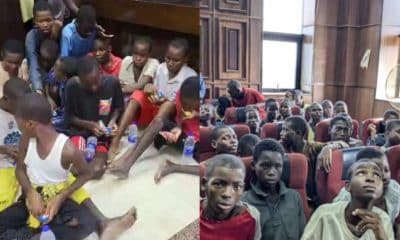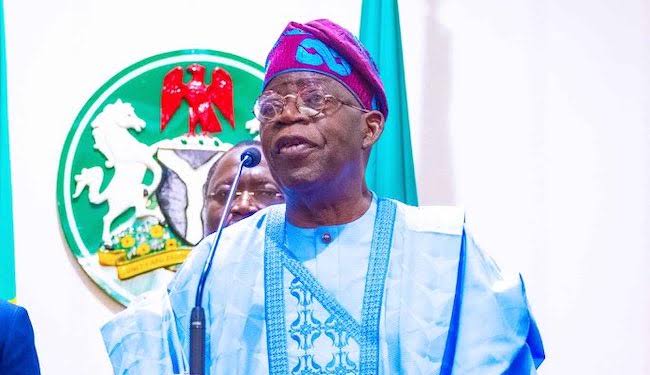News
Justice or Overreach? The Debate on Prosecuting Minors in Protests

The prosecution of minors alongside other EndBadGovernance protesters ignited widespread outrage this past week, especially following allegations of mistreatment.
Videos circulated online showing some of the young detainees collapsing in court, with claims of being roughly treated by the Nigerian police.
The incident drew condemnation from human rights advocates, state governors, and prominent figures, including 2023 presidential candidates Peter Obi and Atiku Abubakar, who described the percussion as “inhuman.”
While Nigeria’s Attorney-General, Prince Lateef Fagbemi, insists there is no legal restriction against prosecuting minors, he noted that President Bola Tinubu’s intervention to drop charges against the teenage defendants was driven by compassion.
Yet the debate goes beyond the letter of the law: Is it morally justifiable to prosecute minors involved in political protests?
The Nigerian legal framework does not explicitly prohibit prosecuting minors, but the outrage highlights how legal provisions may clash with ethical standards.
Globally, many countries impose strict limitations on prosecuting minors, especially for politically motivated offenses.

Reps Tinubu’s $2.2bn Loan
For instance, in the United Kingdom, minors are generally directed to youth courts for most offenses, with the goal of prioritizing rehabilitation over punishment.
The United States takes a similar approach, with juvenile courts focused on reform, emphasizing the potential of young offenders to reintegrate positively into society.
In contrast, Nigeria’s legal approach, which allows for minors to be charged in adult courts under certain conditions, is perceived as a harsher stance. Critics argue that prosecuting minors for protest activities can hinder their development, restrict their rights to expression, and create long-term societal scars.
Several studies emphasize that children and teenagers are often driven to activism by a sense of injustice, not criminal intent, suggesting that educating rather than penalizing these young individuals could be a more constructive response.
President Tinubu’s compassionate release of these minors has been praised as a step toward a more humane approach to youth dissent.
Yet, advocates argue that without legal reforms, Nigeria remains at risk of repeated moral and human rights concerns when dealing with politically active minors.
Human rights groups urge the Nigerian government to adopt a more youth-centered legal approach, one that aligns with global standards and recognizes minors as individuals deserving of rehabilitation, not harsh prosecution.
As Nigeria progresses, the current case has laid bare the need to reassess its approach to youth dissent, balancing the enforcement of laws with ethical considerations to uphold a society that is both just and humane.
Advertise or Publish a Story on EkoHot Blog:
Kindly contact us at [email protected]. Breaking stories should be sent to the above email and substantiated with pictorial evidence.
Citizen journalists will receive a token as data incentive.
Call or Whatsapp: 0803 561 7233, 0703 414 5611






